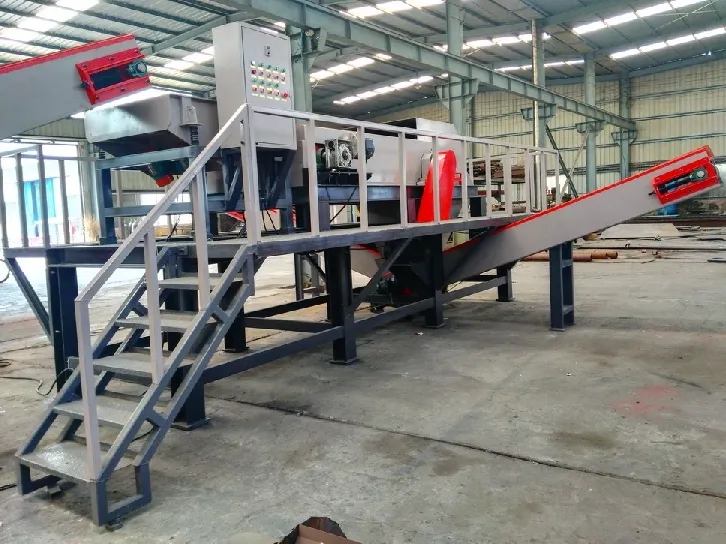

Aug . 13, 2024 01:46 Back to list
Solid Waste Recycling Plant A Gateway to Sustainable Waste Management
In today's world, the issue of solid waste management has become a pressing concern as urbanization and industrialization continue to rise. With millions of tons of waste generated daily, the need for efficient recycling solutions has never been more critical. Solid waste recycling plants represent a vital component of sustainable waste management systems, offering a pathway to reduce landfill dependence, conserve natural resources, and promote environmental responsibility.
Solid waste, which encompasses various materials ranging from plastics and metals to organic matter, poses significant environmental challenges when not managed properly. Landfills are often overburdened, leading to soil and water contamination, greenhouse gas emissions, and the loss of valuable resources. In contrast, recycling plants provide an alternative, allowing for the recovery and repurposing of waste materials.
The operation of a solid waste recycling plant typically involves several key processes collection, sorting, processing, and distribution. Initially, waste is collected from various sources—residential, commercial, and industrial. This waste is then transported to the recycling plant, where it undergoes sorting to separate recyclable materials from non-recyclable ones. Advanced technologies, such as conveyor belts and automated sorting systems, are employed to streamline this process, increasing efficiency and accuracy.
Once sorted, the recyclable materials are processed accordingly. Different materials require different processing methods. For instance, plastics can be shredded and melted down to create new plastic products, while metals may be smelted to produce new alloys. Organic waste, such as food scraps and yard debris, can be composted to create nutrient-rich soil amendments. By transforming waste into reusable materials, recycling plants contribute to the circular economy, where resources are kept in use and waste is minimized.

The environmental benefits of solid waste recycling plants are manifold. Firstly, recycling conserves natural resources by reducing the demand for raw materials. This, in turn, decreases energy consumption and greenhouse gas emissions associated with the extraction and processing of new resources. For example, recycled aluminum saves up to 95% of the energy required to produce it from bauxite ore. Secondly, recycling reduces the volume of waste sent to landfills, thereby extending their lifespan and minimizing the associated environmental impacts.
Moreover, solid waste recycling plants generate economic opportunities. They create jobs in various sectors, including collection, sorting, processing, and distribution. Additionally, these facilities can foster innovation and entrepreneurship within the recycling industry, leading to the development of new technologies and processes that further enhance recycling efficiency.
Community involvement and awareness play a crucial role in the success of solid waste recycling initiatives. Educating residents and businesses about proper waste segregation practices can significantly improve recycling rates. Many recycling plants also engage in outreach programs to encourage the community to adopt more sustainable waste management habits, fostering a culture of environmental stewardship.
In conclusion, solid waste recycling plants are indispensable in addressing the growing challenge of waste management in our urbanized world. They serve not only as processing facilities but also as catalysts for sustainable development—conserving resources, reducing environmental impact, and promoting economic growth. As we face an ever-increasing volume of solid waste, investing in and supporting recycling initiatives will be paramount in our collective efforts to create a cleaner and more sustainable future.
Latest news
Troubleshooting Common Eddy Separator Problems
NewsJul.04,2025
The Role of Metal Recycling Plants in Circular Economy
NewsJul.04,2025
The Impact of Recycling Line Pickers on Waste Management Costs
NewsJul.04,2025
Safety Features Every Metal Shredder Should Have
NewsJul.04,2025
How Industrial Shredders Improve Waste Management Systems
NewsJul.04,2025
How Cable Granulators Contribute to Sustainable Recycling
NewsJul.04,2025